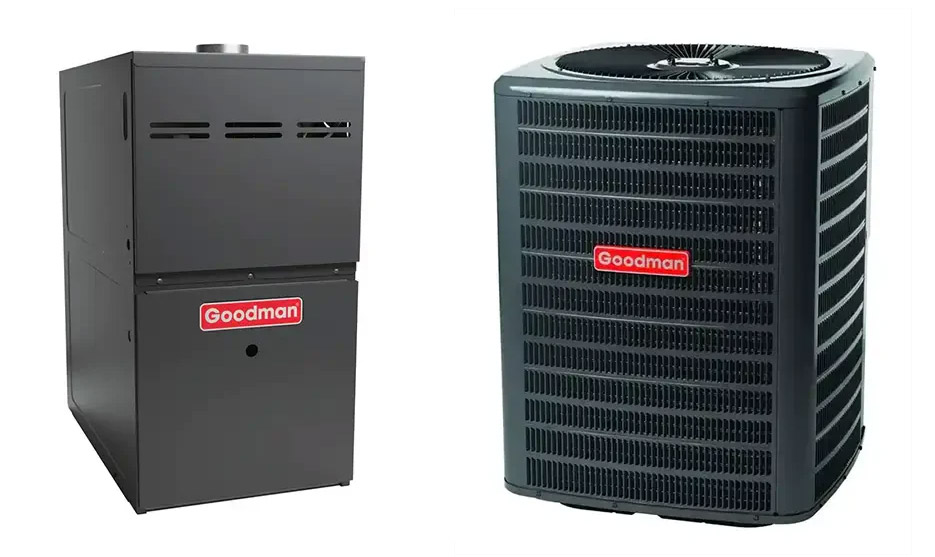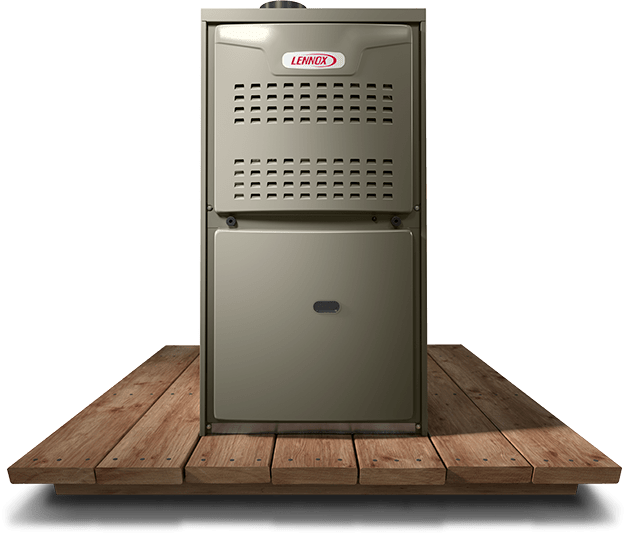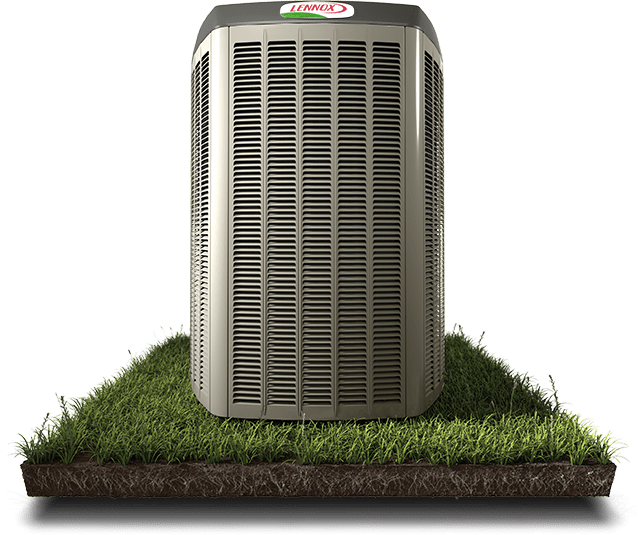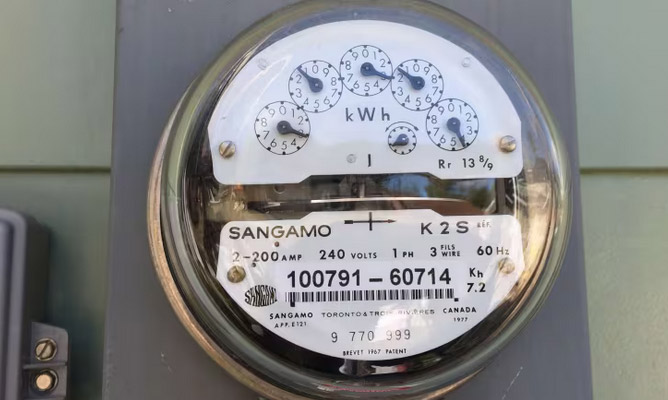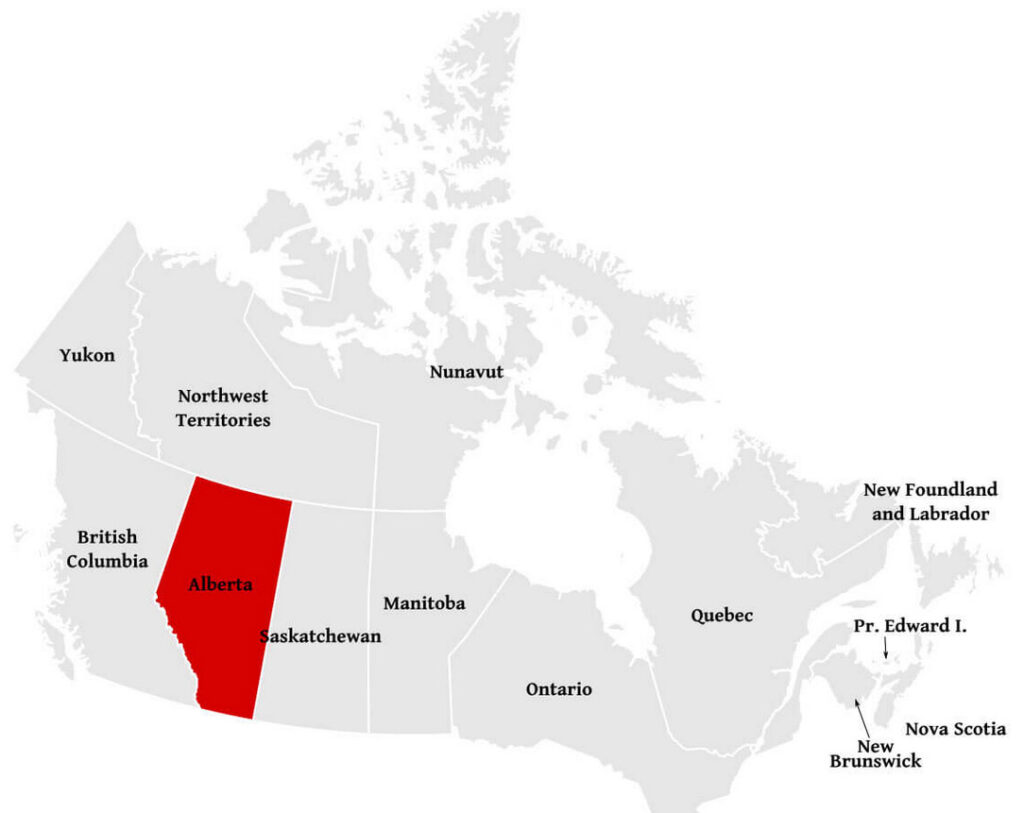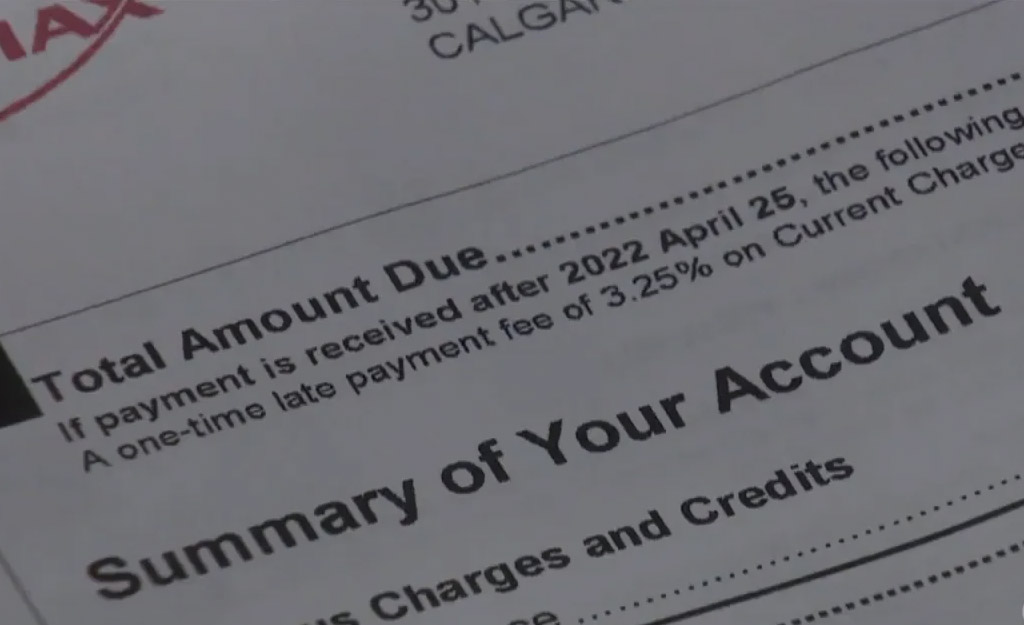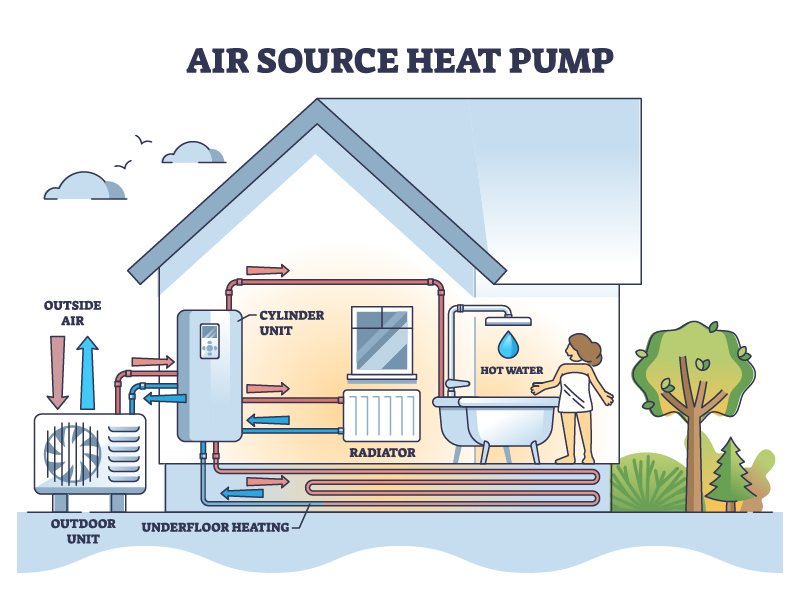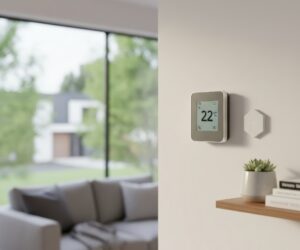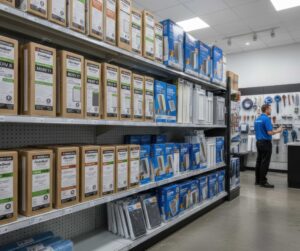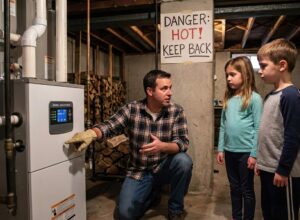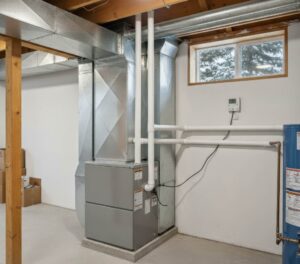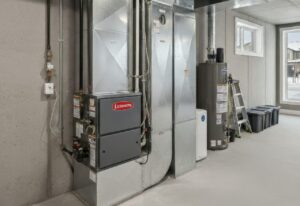When considering the real costs of a furnace or heat pump, the calculation should be two-fold: installation costs and running costs.
The ongoing costs are nearly always a major consideration when choosing new HVAC equipment for homes because nobody likes high bills month after month.
With our unique climate in Alberta, we’re fortunate to have a large supply of cheap natural gas available and feeding into the majority of homes. But does that mean that gas furnaces are always the most cost-effective way to heat homes? Or are heat pumps, which run on electricity, a good option?
Let’s find out…
WHAT IS CHEAPER TO RUN: A HEAT PUMP OR A GAS FURNACE?
Gas furnaces are typically cheaper to purchase than heat pumps but the running costs of heating and cooling equipment depend on the climate, local energy costs, type/brand of equipment, etc. Generally speaking, a heat pump is more efficient but only until temperatures drop to well below freezing (-10 or more), which is when a furnace becomes more efficient and cost-effective.
So, before deciding on whether to buy a gas furnace, heat pump, or both, it’s best to speak to knowledgeable professionals who can help you make that decision.
GET YOUR HEATING & COOLING DECISIONS RIGHT …
For over two decades, Alberta Mountain Air has helped Calgarians solve heating and cooling problems and maintain ideal comfort levels. Get in touch online or call 403-236-4366 for a quote.
WHEN IS A GAS FURNACE CHEAPER TO RUN?
Generally, gas furnaces are more efficient to run and heat the home when natural gas prices are low (like in Alberta) and temperatures are below -10 degrees Celsius. Where natural gas prices are higher and the year-round climate is milder, this may not be the case.
It should be noted that a natural gas supply is not available everywhere in Alberta outside of the main cities. If there are no gas lines into the home, a natural gas furnace is not an option. Also, ducting is required for a natural gas furnace, so if this is not already installed, the costs of installing a natural gas furnace-based heating system go up.
WHEN IS A HEAT PUMP CHEAPER TO RUN?
Heat pumps are typically cheaper to run when a home requires less heating power (i.e., the temperatures are not at the depths of an Alberta winter). Even though they run on electricity, which is considered more expensive than natural gas in Alberta, the extra efficiency of heat pumps (up to three times the efficiency) makes them an attractive option for much of the year.
High-efficiency heat pumps typically use less source energy than gas furnaces in milder climates but in colder climates like Alberta, a 95% efficient gas furnace is likely to fare better than ENERGY STAR® heat pumps when the temperatures drop well below freezing.
SO, SHOULD A HEAT PUMP REPLACE A FURNACE?
Think carefully before completely ripping out your gas furnace (and possibly air conditioning too) and replacing it with a heat pump. Start by reading this post on whether a heat pump replaces a furnace and then consider what happens in the coldest snaps in Calgary winters.
Ideally, a dual system uses the benefits of a heat pump in the milder months (doubling as an air conditioner in summer too), while the gas furnace kicks in when the temperatures hit 10 or 15 degrees below.
WHAT FACTORS IMPACT THE COST OF HEATING EQUIPMENT?
So far, we’ve assumed that you know what the main differences are between gas furnaces and heat pumps.
Let’s remind ourselves:
- Air-source heat pumps provide both heating and cooling, operating with technology similar to air conditioning systems. They remove warm air from indoors and transfer it outdoors through the compressor in summer and reverse the cycle in winter to heat buildings.
- Gas furnaces use the combustion of natural gas to generate heat, which is then distributed throughout homes via ductwork and vents to provide warmth.
Before agreeing to the substantial purchase and installation costs of this equipment, most homeowners want to know what their monthly bills are going to be. The running costs of heat pumps and gas furnaces—and the likelihood of you choosing one over the other—are impacted by the following factors…
Your region
A study published in 2024 found that the Atlantic Provinces, Quebec, and British Columbia are all more likely than Alberta to adopt heat pumps. It also found that rural areas are strongly associated with a willingness to install a heat pump.
The region you live in is, therefore, an important factor in your gas furnace vs heat pump decision—and Albertans generally need more convincing than many other Canadians to move from a gas furnace.
The cost of natural gas
The cost of natural gas varies by region and is governed by different provincial bodies. This will impact your decision about how to heat and cool your premises.
Traditionally, in Alberta, with our plentiful supply of cheap natural gas available, most homeowners have chosen natural gas furnaces. However, with the improvement in heat pump technology and efficiency—as well as awareness campaigns—heat pumps are becoming a viable option.
The cost of electricity
Just as with natural gas, each province sets different electricity rates and this will impact the cost of running a heat pump as opposed to a gas furnace.
In Alberta, electricity is expensive compared to British Columbia, Ontario, and other provinces. It’s also expensive compared to natural gas rates, often making the decision to switch to a heat pump more complex.
The climate (outside temperatures)
It’s no secret that the climate varies considerably across Canada. We’re a huge country, after all.
Many Canadians cherish the variance in climates but it does complicate the question of which is cheaper to run: a heat pump or gas furnace?
In provinces with milder climates (and cheaper electricity), heat pumps are cheaper to run, whereas in colder provinces where natural gas is cheaper (like Alberta), either gas furnaces or a combination of a heat pump and gas furnace will be the most efficient HVAC solution.
The type of equipment installed
The heat pumps available and installed in most of Canada in recent years are cold-climate heat pumps that are designed for use in low temperatures.
In the past, heat pumps were less viable for many Canadian homes because they struggled to heat cold spaces in very low temperatures (anything below freezing). This has improved with technology, making high-efficiency heat pumps available that operate well down to about -10 degrees.
That said, technology hasn’t stood still for gas furnaces either. High-efficiency gas furnaces are much more energy-efficient than their predecessors.
If you’re comparing a high-efficiency furnace with a low-efficiency heat pump, this will favor the gas furnace—or vice versa. It’s best to compare high-efficiency versions of both units for an informed decision. For furnaces and ENERGY STAR® heat pumps, high efficiency is considered to be an AFUE (Annual Fuel Utilization Efficiency) of 90% to 98.5% or more.
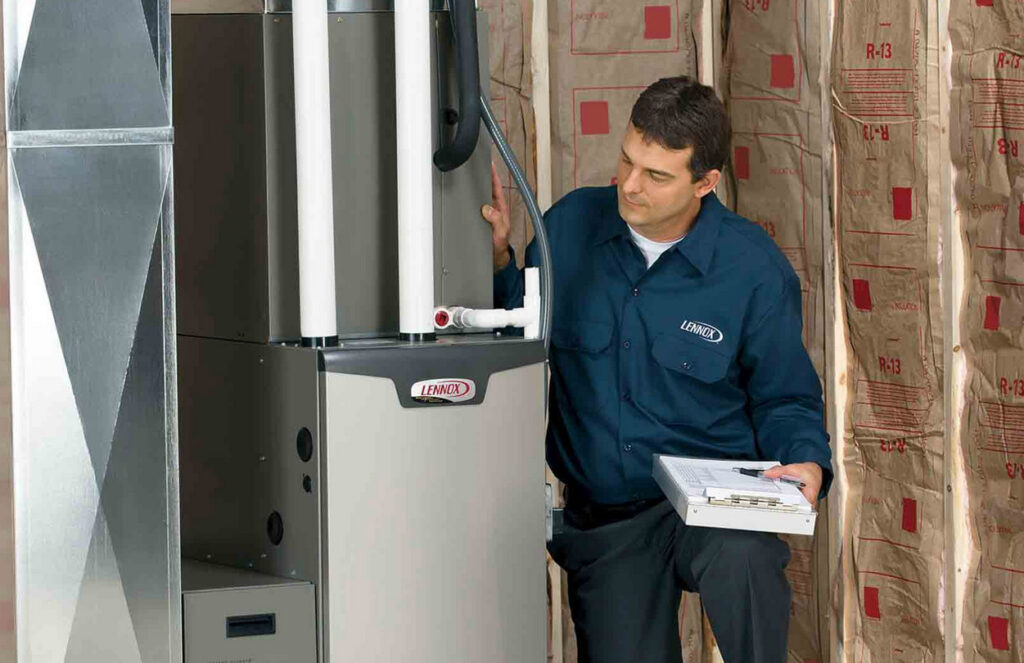
FAQs
What’s cheaper to buy: A heat pump or a furnace?
Generally, the upfront costs of a heat pump are higher than a gas furnace. However, it does depend on the existing HVAC “infrastructure” in the home. Gas furnaces require ducting and ventilation systems because they combust gases—and if there is no existing gas line into the home, the costs may be prohibitively expensive.
How do the maintenance costs of heat pumps and gas furnaces compare?
Gas furnaces typically require at least annual maintenance before the cold season sets in. They also need regular filter changes and furnace repairs may also be required as the unit ages. Heat pumps require annual maintenance to run at peak efficiency and avoid common issues too, with air filters also needing to be changed regularly.
Are tax credits available for HVAC equipment?
Rebates and tax credits for high-efficiency HVAC equipment (above 96% AFUE) may be available for homeowners in Canada through federal and provincial government agencies. This can ease the financial burden of upgrading heating and cooling equipment. Check with the professionals at Alberta Mountain Air for the latest information.
Can you replace an old gas furnace with a heat pump?
Yes—but talk with a knowledgeable local professional before doing so as it might leave your home’s heating power short in the coldest snaps.
Can a heat pump heat the entire home?
Heat pumps can heat entire homes or be used to provide supplemental heating to smaller spaces. It’s important to first get your home’s heating and cooling requirements accurately assessed by a professional, who can calculate the required size and power of the unit(s) you purchase.
SWITCH TO A HEAT PUMP OR UPGRADE YOUR GAS FURNACE?
Many readers will have read this post to find out if it’s more cost-effective to switch to a heat pump or upgrade a gas furnace in Calgary homes.
Heat pumps are almost always cheaper than oil or propane furnaces or electric baseboard heating—but when compared with gas furnaces, the answer is not so clear-cut.
Ideally, for the Alberta climate, you will run a dual system with a heat pump doing most of the heating throughout the year but the gas furnace kicks on when the temperatures plummet below -10.All of our HVAC professionals are SAIT-certified and trained to service and repair any type or brand of gas furnace or heat pump in Calgary. Call us at 403-236-4366 or contact us online.
